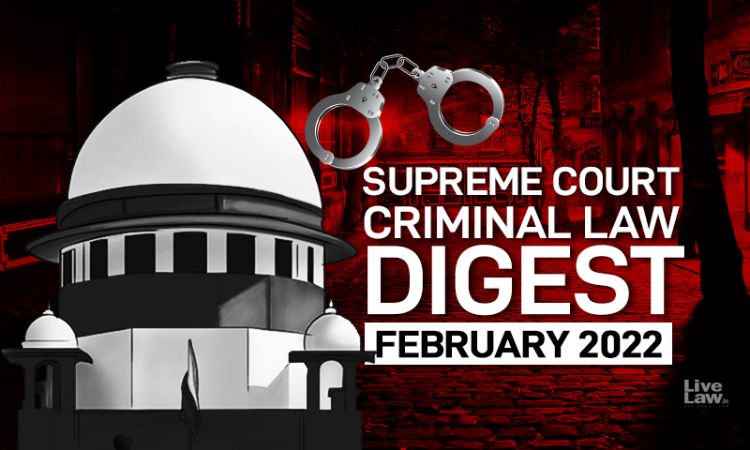Next Story
24 March 2022 11:43 AM IST
Anticipatory bail granted to Trinamool Congress leader Sheikh Sufiyan in a case relating to the murder of a BJP supporter during the West Bengal post -poll violence. Sk. Supiyan @ Suffiyan @ Supisan v. Central Bureau of Investigation | 9 Feb 2022 | 2022 LiveLaw (SC) 146 Army Act, 1950 - Section 125 - Section 125 not only recognizes that an element of discretion has been vested in...

